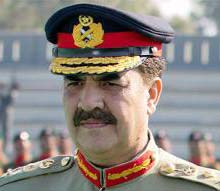Arab News
Hassan Barari
The Kremlin said on Thursday that there was no agreement between Russia and the United States on the future of the Syrian President Bashar Assad. The Kremlin’s denial of such an agreement came in the wake of a leaked report about the latest meeting between Kerry and Lavrov in Moscow.
US Secretary of State John Kerry was reported to have told several Arab countries that Moscow and Washington reached an understanding on the departure of Assad to a third country at some unspecified stage of the transitional period. The Kremlin spokesman, Dmitry Peskov, said “Russia is advantageously different from other nations because it does not discuss the issue of the self-determination of third countries either through diplomatic or other channels.”
The talk about the future of Assad has suddenly gained relevance and momentum after the long-awaited talks designed to end the Syrian crisis started last month in Geneva. While the opposition made it perfectly clear that Assad would have no role in Syria during the transitional period, the government delegation considered that as redline. Kerry was not happy with the Syrian government’s comment and snapped back describing such comments as spoilers.
The Geneva proximity talks will be resumed soon under the supervision of the United Nations special envoy Steffan de Mistura. During the next round of talks, the opposition is dead set on pressing all sides to agree on one thing: There must be no role whatsoever for Assad in the transitional period. Seen in this way, Assad’s proposal that the opposition join him in a national unity government fell on deaf ears.
To be sure, Moscow understands that Assad is a sticking point and that any failure to come up with an acceptable solution would mean another round of hostilities. It does not seem that this is what Russia seeks after it withdrew the bulk of its air force from Syria. By the same token, the leakage of the report has embarrassed Russia at a time the terms of peace are yet to be reached. Russia believes that such leakage will only make the opposition more determined to discuss Assad’s future as a precondition before the start of the second round to be held some time this month.
While Russia is a key player in the Syrian crisis – thanks to its military intervention – it cannot prevent the opposition from throwing this idea anytime. Assad’s future should be the core of the peace talks in Geneva according to the opposition. Besides, Russia’s insistence on the mantra that “the fate of Assad is decided by the Syrians themselves” could undermine the process of negotiations and push many in the opposition to come to the conclusion that resuming fight is a better option.
Whether or not that there is an agreement between Russia and the United States on the future of Assad, the final objective of the talks should be vividly remembered.
The need to end the crisis is way more important than this or that leader. At one point, Russia should decide that Assad’s removal could be the only way to push for a genuine solution in Syria. Assad’s attempts to offer himself as a partner with the West to defeat radicalism and terrorism are not going to work in the end simply because his survival is widely considered as a magnet for radicalism and terrorism.
Besides, some key regional players consider Assad’s regime itself as nothing but a terrorist gangster that should be dealt with as Daesh. And yet, in order not to repeat the same mistakes of Iraq in 2003, some suggest that the institutions of Syria should be kept intact and that a way out for Assad should be sought.
And to be sure, ensuring the territorial integrity of a stable Syria is a challenge that could be addressed more effectively if Assad leaves the country.



